Portrait of an Artist as a Young Liar
The absolutely true story of how I made up an identity, moved to Los Angeles, and became the writer I always wanted to be
September 3, 2005
I’m somewhere west of St. Louis, hauling ass toward California at 80mph when I consider yet again pulling over and driving to Louisiana instead. I just had dinner with an alt-weekly music editor I freelance for at the Riverfront Times, and Hurricane Katrina and its aftermath are all we could talk about. I feel like I should do something, the enormity of what’s happened is so overwhelming, but I also can’t imagine how that would even play out. I’d just drive into New Orleans, find the first person in a hazmat suit, and ask them where they need me? This is how my entire drive to Los Angeles, my new home in a couple days, is defined – a terrible sense of impotence. In fact, most of my first year in L.A. will feel similarly confused. It will be years before I realize that — despite all the uncertainty and fear that came with the move — those first twelve months were also some of the most memorable of my entire life.
July 2004
I email the music editor of my local alt-weekly newspaper, Detroit’s Metro Times, and ask him if he needs anyone to review albums or interview musicians. I attach a sample I spontaneously wrote that morning when the idea to do this popped into my head. Also, a completely fictional CV that claims I’ve worked as a journalist for a few years now. The thing is, my only “professional” writing experience at this point in my life is a few short stories literary journals saw fit to publish and dozens — maybe hundreds — of rejection letters regarding innumerable others and a novel I’m beginning to suspect will never see the light of day.
I receive an email a few hours later. There are only three sentences in it:
Great name. I love your work. Let’s talk.
October 2004
I’m at the Metro Detroit credit union where I’ve had an account for close to a decade. The teller knows who I am, having seen my face regularly for years. She knows my father even better because my father’s great big smile and chattiness makes him everyone’s friend.
“Sorry, I don’t understand,” she says. “You want me to cash checks made out in someone else’s name?”
“No, that’s me – Cole Haddon. It’s a nom de plume.”
“A what?”
“A pen name. I’m a writer.”
“Sorry, I still don’t understand. Let me get my manager.”
September 5th, 2005
I’m half-asleep as I arrive in Los Angeles, but the sight of the sun setting behind Downtown feels at the time like the most beautiful thing I’ve ever seen. The city is on fire, it seems. I’m finally here. After years of coming up with excuses, after years of pursuing my dreams asymmetrically rather than head-on, I’ve come to Hollywood to become a filmmaker.
Thirty minutes of 101 rush hour traffic later, I park outside a craftsman on Coronado Street in Echo Park - in what you might know as the Rampart Division. This is where “The Shield” is set. The police department has allegedly improved, I’m told, but I’ll see no evidence of this during my time here. My neighbor, a drug dealer, is the street’s real guardian. I call the police three months later because of an incident, but nobody ever comes. A couple of months later, I point out to two cops parked in a cruiser that a person is breaking into the car literally parked right behind them and I’m told, “That’s nice,” and waved off.
The craftsman where I will live is a four-bedroom rental already occupied by two musicians — let’s call them Jesse and Mark — and an aimless hipster we’ll call Justin who makes about $20 a month writing reviews for The OC Weekly. This is the only job I’m aware that he holds, by the way. I found the three of them on Craigslist. Jesse and I spoke on the phone once, which is how I was picked to move into the empty room upstairs. He seemed friendly enough, but when I walk in, I can immediately feel his judgment. My shoes are comfortable rather than cool. My jeans are comfortable rather than tight or corduroy or a weird color like maroon. My tee shirt was bought off a rack at the mall, not a thrift store. None of the boxes I brought with me are filled with vinyl. I own a DVD player, not a record player - because I know nothing about music even though I’m a music journalist with too much work at the moment (a secret I learn to carefully guard).
I’m shown my room. It’s empty except for an Ikea desk that likes to roll around until I slip old socks under the wheels. I empty a duffel bag of clothes onto the hardwood floor and use them for a mattress. The next day, I find a used Ikea mattress on Craigslist and pick it up. Almost every piece of furniture I own in that first year will have come from Ikea.
September 8th, 2005
My first piece of mail arrives. “Who’s Cole ______?” Justin the “music critic” asks me, reading the name on the envelope with some skepticism. I will loathe two of the three guys I live with for my first year in L.A.; he’s one of them. In the future, every time he hands me a paycheck envelope from any of the more than two dozen alt-weeklies I write about music and film for around the country, I’ll be able to see the resentment in his eyes.
Today, I explain that the Polish last name on the envelope is my real name. Haddon is a pen name. I picked it because, as I joke, even people in my own family can’t pronounce the Polish one (which is true).
My father is similarly confused why I’ve chosen not to use his name. He thinks I’m trying to hide from who I really am. Maybe he’s right. Maybe I’m trying to become who I’d rather be. Isn’t that why people come to Hollywood?
Autumn 2002
I’m living in Sydney, Australia with my girlfriend, who will be my ex-girlfriend within a year. I’ve come to this country to discover who I am. I’m still trying to work that out, as my mother is Aussie but somehow failed to ever take her kids home for a single visit. Half of me has always been missing, anxious to be filled in, you could say. Now I’m meeting family I’ve never even seen photographs of - and everyone looks like me, or rather I look like them.
I feel at home in a way that I never have in Michigan.
Meanwhile, I work every day on revisions of a novel that will eventually earn me a small scholarship from the University of Michigan that I, in turn, will spend on my first vacation in Europe. I also write and mail off short stories to literary journals, all written under a pseudonym: Cole Howard.
Howard was my grandfather’s first name. It’s my first stab at creating a fictitious identity for myself. The problem is, John Howard is the prime minister of Australia at the time and every friend I have there loathes him. It’s understandable. John Howard is a loathsome individual who, in years to come, will be seen as one of the architects of the death of the “Australian Dream”. Because of this, I’m repeatedly told I should pick some other name.
I spend months scribbling names on a piece of paper, testing the ones I like out on my girlfriend and others. I don’t even remember why I settled on Haddon as my new last name except it sounds kind of like Howard. In less than two years, I will become an arts journalist on a whim and, in three, I will arrive in Los Angeles, along the 10, a place that will never feel like home but which I will live for the next eleven years.
Mid-September, 2005
A musician I know named Scott Thomas picks me up at the corner of Sunset Blvd. and Coronado. His wife Michelle, an actress, is in the passenger seat. I met Scott in Detroit where he was opening for Weezer; he was one half of a band called Ringside that also included actor Balthazar Getty. The two of us hit it off during the interview, and he told me to look him up when I got to L.A. – after having made me promise to do it after I told him my intentions. Don’t talk about your dreams, chase them, was the message.
I spend the afternoon house-hunting with the couple, which is my first taste of the city’s real estate market (back then, houses were still somewhat affordable). Afterward, they bring me back to their house in the Hills for dinner. Scott plays me music on the piano in his studio. He then takes me into his backyard, up the many terraced levels of it, to the highest point where he waves for me to take a seat beside him.
We look out at the setting sun and the Valley’s lights beginning to sparkle in the deepening shadows. I tell him how uncool this city has already made me feel, citing my comfortable shoes as part of the problem. I don’t have the resources to buy the clothes I’m expected to wear out here. Later, Scott will give me a vintage Yves Saint Laurent jacket to start me off. But right now, he gives me advice that has served me well for close to twenty years. He points at his own shoes. They’re beat-up old Converse. He says, “Buy yourself Chucks. They cost $35 and you can wear them to casual parties or high-end events. They fit in everywhere. They’ll change your life, brother.”
Seven years later, I’ll wear Chucks to my wedding.
Christmastime 2004
I’ve only been a freelance journalist for six months, but I’m already making about $2,000 a month writing for alt-weeklies in a variety of chains including the now-defunct Times-Shamrock Communications and Village Voice Media. This is not amazing money in any way, but for a freelancer, especially one with no credibility in the field, it’s huge. When I first reached out to the Metro Times, I cited a CV I had completely made up just like the last name of Haddon. Half a year later, my name appears four to six times a week around the country.
In years to come, after I’ve sold several screenplays, my former editor at the Metro Times will interview me as the cover story for the paper. “Hometown boy makes good in Hollywood,” that sort of thing. During our conversation, he’ll admit he found me unbelievably annoying after that first email he sent me. I was over-eager and I clearly had no idea about music. I was the antithesis of cool, I think, was the implication. To get rid of me, he forwarded my name along to several other editors he knew. These editors, equally ignorant of my lack of experience, trusted him and threw a ton of work my way.
But in 2004, I know none of this. I only understand I suddenly have a consistent income as a writer. More importantly, I’ve had a come to Jesus moment with myself.
I’m twenty-eight years old. I’ve failed at every attempt I’ve made to become a professional artist, but I know in my heart none of these efforts involved total commitment. It’s time, as my father would say, to shit or get off the pot.
I tell my parents I’m moving to L.A. to make movies. They tell me that sounds great, but I know they assume I’ll be back after I fail. So do my closest friends. I always come back after I fail…but I have no intention of proving them right yet again.
Christmastime 2005
I fly to Detroit for a week, in part to cash almost $10,000 in checks at the credit union where they trust I’m not trying to con them by claiming to be some fictitious version of me - the version of me everyone in L.A. thinks is who I am. But really, I’ve come home because I miss the familiarity of my old life, the ease of it, my friends who know me - or at least the part of me I could express when I lived here, the part of me that didn’t always feel like it was missing something.
A Star Wars quote crosses my mind. “This is a dangerous time for you, when you will be tempted by the dark side of the Force.” For me, the Dark Side is the life I will lead if I ever return to Michigan for good.
But it’s also impossible to pretend away that after three months in L.A., I feel crushingly lonely and out of place. People there have encouraged me to work at popular cafes like the Bourgeois Pig, but I find them even lonelier, populated entirely by screenwriters of all levels who see each other as competition (you can read more about this here). In a town filled with writers, I still don’t know any. I need a tribe.
I confide none of this to anybody in Michigan. When my sister picks me up at the airport, she makes a crack about how “Hollywood” I’m trying to look, implying I’m putting on airs. Most of my family and friends will do the same during this first trip back. I’ll never forget how this working-class bullshit made me feel, and in most ways, I’ve never let any of them “back in” to the artist side of my life since.
Winter 2006
I am perpetually intimidated by the deep knowledge of music history demonstrated by so many others I know in L.A. But I am a sponge. I soak it all up. I go to every concert that I can. I talk to random musicians at bars. None of these artists seem to question me like my roommates do. Waylon Jennings’ son, Shooter Jennings, even invites me to the studio to hang with him as he records his second album Electric Rodeo. He tells me about once waking up in the backseat of his car after a long night of partying, on the floorboard, in a pool of his own vomit. The vomit had congealed while he was unconscious, gluing his beard to the floor mat. I laugh my ass off at this story.
I’m starting to realize I’m never going to be like these people, but maybe that’s okay.
Later, I tell my father I know Waylon’s son and my father says, “That’s great.” He’s a big fan of Waylon Jennings, but he doesn’t seem impressed by anything I do in L.A. It’s a city of liberals, which means people of color, queer people, artists who don’t work with their hands. He no doubt feels me slipping further and further away from him…because I am.
October 26th, 2005
I attend a concert at the House of Blues on the Sunset Strip. Specifically, to see Brandi Carlile perform. Even at this point, so early in her career, she’s a sight to behold. Her voice still makes me shake.
While waiting around between acts, I meet an Australian music journalist in town and hit it off. His name is Andrew, and I tell him the story about how I interviewed Australian singer-songwriter Missy Higgins earlier in the week. I spent the chat doing my best to get Missy, whom I had a crush on because of her work, to spark to me. Utterly inappropriate, of course. But by then, I’d had a few female musicians come on to me, so I was hopeful. By the end of the interview, utterly dejected by how pathetic I am, I discovered the other woman in the room was, in fact, Missy’s girlfriend.
Andrew can’t stop laughing. We will remain good friends for years to come.
December 2005
I can’t be sure of the exact date, but my first film press junket is for Brokeback Mountain. I’ve interviewed several musicians in person before, but today I get to sit down with the film’s stars and, most importantly, its director - Ang Lee. This took no effort to set up, by the way. I just emailed a publicist, said I had a story to write, and, voila I’m ushered into a room to chat with a person who’s helmed several films that made my life better.
At the end of the junket, I realize I’m a terrible arts journalist. To be fair, I’m now turning out five to ten articles a week. I’m interviewing three to seven musicians or actors/filmmakers a week to accomplish this. I’m transcribing hours and hours of conversations. I sometimes write twenty-six hours at a time, breaking only to pick up BRC burritos from El Pollo Loco (these still taste like heaven in my memory) and down one Monster energy drink after another to keep myself going (the thought of these make me gag today).
In hindsight, I realize this was essential training for me. “Writer’s block” was not and could not be part of my life. I had bills to pay, so I just wrote. And wrote. And wrote. All those conversations I transcribed taught me to pay attention to how people speak, the cadence of their delivery, their regional word choices, what they say and, more importantly, what they don’t say. This is how I learned to write dialogue. Maybe most relevant to who I am today, I am learning how to think and discuss art.
January 2006
I attend my first film festival, the Santa Barbara International Film Festival, where I wear my second-hand Yves Saint Laurent jacket and Chucks almost everywhere. Most importantly, I eat like a king. Food is available everywhere I go. I’ve been living off El Pollo Loco and Mexican street food for so long, I can’t believe my good fortune. It will be years before I get over the freelancer’s habit of gorging myself on free food.
March 19th 2006
My new friend Andrew the Aussie music journalist has travelled to SXSW with me to cover the festival. By this point, he’s realized I make contacts everywhere I go. They’re never helpful contacts, mind you. But they’re interesting. In this case, a major music magazine’s editor has decided to invite me (and, thus, Andrew) to his rental for a party tonight. Everyone here is ridiculously beautiful, hip, and higher than I am. While sitting in the hot tub, failing to impress the half-naked women sitting across from me, someone bursts out of the house and shouts, “The cocaine delivery guy is here!”
I’m a long way from home and the life I once knew.
None of it scares me either. For the first time in my life, the person staring back at me in the mirror feels familiar to me. And yet, I cannot shake the feeling it’s all based on fraud. Liar liar, pants on fire.
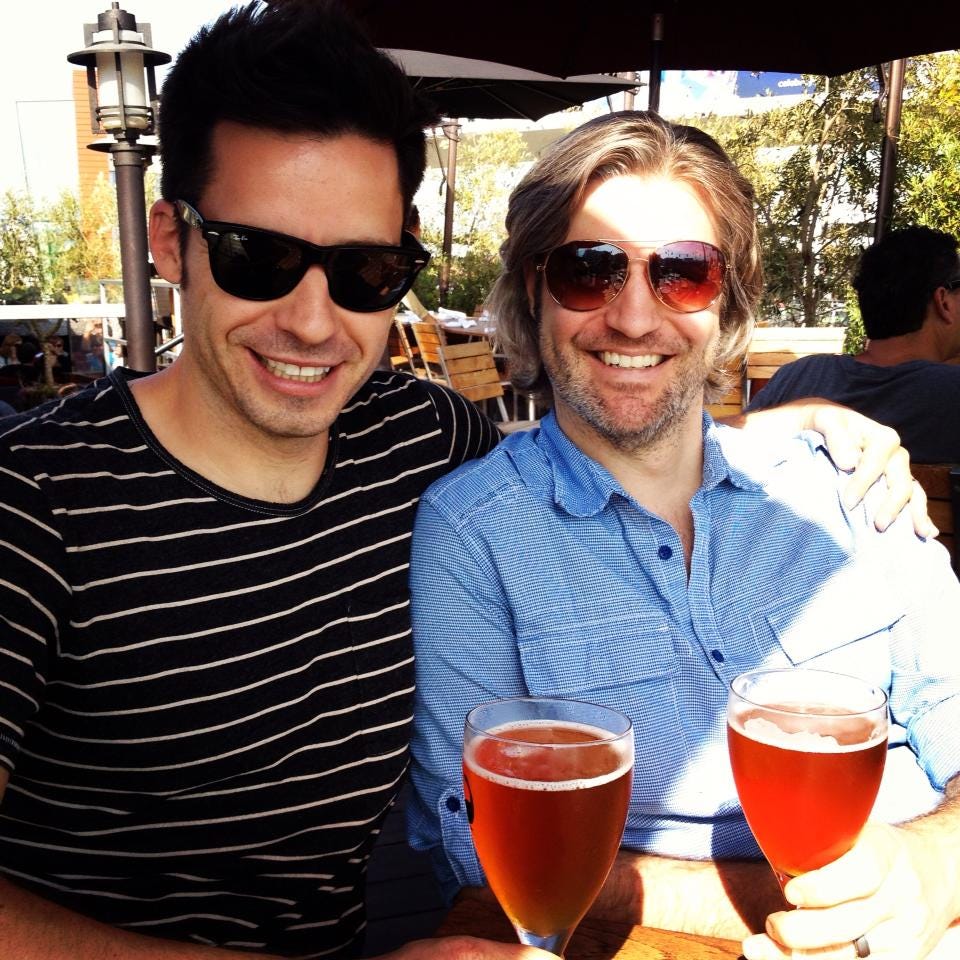
Winter, Spring, and Summer 2006
In no particular order: I write three screenplays; a friend’s wife tries to sleep with me (I decline); an editor tells me I’m probably one of the most published freelance journalists in America (I don’t believe this); an alt-weekly music editor accuses me of plagiarism with no evidence and her boss acknowledges as much, but the damage is done and half of my income dries up; I start playing in weekly poker games that boost my income by about $750 a month; I finally make several new friends and start hanging out with them at local parties and bars.
And more and more, I talk about who I was in Michigan. For the first time in half a year, I acknowledge to others I have a fake name. Maybe I’m fake, too. They accept me as I am anyway because they all came out here to reinvent themselves, too. We’re all creating ourselves every day in L.A. - something I will later come to accept we all do, wherever we live, as young adults.
July 22nd, 2006
My new friends take me to Cinespia in Hollywood Forever Cemetery to celebrate my 30th birthday. I’m told I can drink all I want as one of them will be the DD. I make it one drink in when I realize the DD is, in fact, three drinks in himself. I stop drinking. When we get in the car to go home, five of us packed into his beater, I, as the only sober person, am tasked with driving home from my birthday celebration. Except there are no brakes. I have to drive using the parking brake the whole way.
When I finally get home, I find my roommate’s fiancée sitting on the front porch with a bottle of Jameson’s. The “music critic” Justin is her betrothed. She gets upset at how sober I am because it’s my birthday and makes me take several swigs. She keeps touching my arm. I don’t remember how, but we end up in my bedroom sitting on my mattress which lives on the floor of my mostly barren bedroom. She tells me I need to get a bed with good sheets — something with a high thread count — if I ever want to get laid. I pretend to know what “high thread count” means as she keeps leaning toward me. I keep telling myself over and over, “Don’t sleep with your roommate’s fiancée.”
I don’t sleep with my roommate’s fiancée.
L.A. is a really weird place.
Late-July, 2006
I get into a fight with Jesse, one of my musician roommates, because my friend Andrew has come to stay again. Andrew sleeps in my bedroom, so this shouldn’t be an issue. The roommate in question has a girlfriend who sleeps over every night of the week, but doesn’t pay rent or any bills - just like Justin’s fiancée. The major difference is Jesse’s girlfriend never tries to sleep with me. I can’t shake the feeling his disdain for me is entirely because I don’t collect vinyl like he does.
Years from now, I will have a vast vinyl collection of my own. In some small way, the joy I take from them will always be slightly diminished by the fact that I share this passion of mine with such a childish second-rate musician who measured his life’s success by how unsuccessful he managed to remain.
September 1998
I’ve been living in San Diego for three months. Four years out of high school, I moved to California to chase the Hollywood dream, but the one person I knew in L.A. left just before I arrived. I instead find myself crashing with an old friend from Michigan, sleeping on his couch, watching television for hours a day as I avoid doing anything at all to…you know…chase the dream. I’m not ready. I’m terrified. I have no idea what I’m doing either, having never lived away from my parents and friends and support system.
A vision comes to me. An epiphany, you could say. If I stay any longer, I’m confident I’ll end up working at Home Depot for the next ten years, spending most of my income on pot, and occupying myself with video games and writing scripts I do nothing with.
So, I drive back to Michigan. I’ll return to university in a few years. I’ll write a novel nobody but I care about. I’ll win some scholarships and fellowships based on my writing. I’ll move to Australia, travel around the States, Europe, and the South Pacific, and have my heart broken into a million pieces on a couple of occasions.
Most importantly, I’ll live.
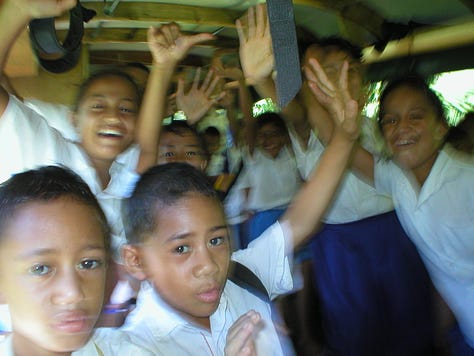
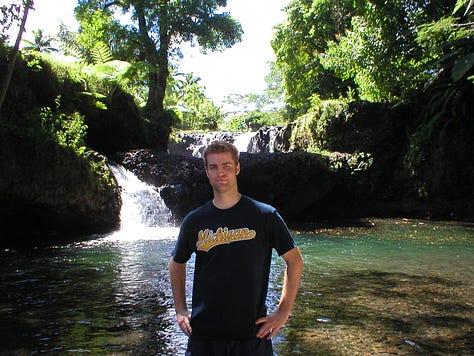
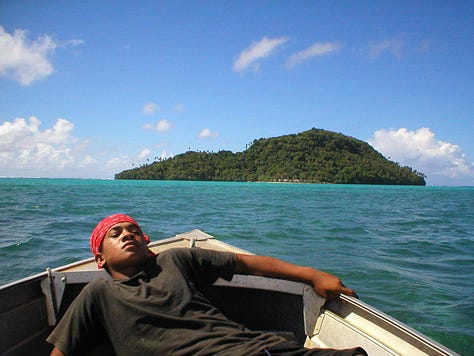
August 2006
My hipster roommates tell me the landlord is going to sell the craftsman where we live. We all have to move out next month. I pay $500 a week right now and feel relatively secure in the house, which, despite the roommates, is dark and cozy and just my vibe. It’s also in a neighborhood I’ve learned to love. I’m devastated.
I head to Craigslist and answer a few roommate ads. I find a two-bedroom place closer to Downtown, on top of a hill, living with a photographer I’ll quickly discover is a sociopath who likes to emotionally abuse his desperately compliant girlfriend who has the unfortunate habit of leaving naked Polaroids of herself all over the house to surprise him. I’m supposed to pretend like I don’t see these. Like, “Oh, hey, what’s that on my shoes? Oh, it’s X’s boobs. Cool.”
September 5th, 2006
I celebrate my first anniversary in L.A. with a group of friends. We hit El Compadre and drink too many margaritas. They toast to me having survived this long. I tell them I have no intention of giving up. I’ll sell my first feature film two years later (which you can read about here). When I tell my best friend of this sale, he’ll get teary, too. “I was getting worried I’d have to stage an intervention to get you to finally grow up,” he’ll say to me.
October 24th, 2006
While I’ve joked about women trying to sleep with me, the truth is I did very little dating during my first year in L.A. My focus was entirely on creating a stable income for myself and building relationships that might help me break into the film business. But in the late summer of ’06, I decided it was time to start meeting members of the opposite sex again. I still had a very shallow pool of relationships to call upon to head out on the town with, so I turned to Match.com instead. It did not go well and, after the one-month trial, I canceled it and gladly moved on.
Almost immediately — this being October 24th — I receive an email from a fellow Michigander now located in Hollywood. I am struck by her tone and sense of humor. Of course, that’s how dating sites get you. After putting it off for a week, I sign back up despite being broke and email the woman who will eventually become my wife - Lindsay Devlin. She’s a producer. When she hears I’m an aspiring screenwriter, she groans. Everyone in L.A. is either an aspiring screenwriter or an aspiring actor. Ironically, she will one day trade her career as a producer to become a screenwriter herself.
Late-October, 2006
My former roommate Justin, the “music critic”, texts me that I’ve received a bunch of checks and I should come by to pick them up. I ask him where I should go since he, too, moved, but he tells me the same house on Coronado. Hm. I make the short drive over. He opens the door to show me into the foyer. Nothing inside has changed. At all. Well, except the hipster I don’t recognize on the couch who gets up and walks upstairs to where my bedroom used to be.
If you haven’t figured it out, let me spell it out for you: my former roommates tricked me into moving out so they could move someone cooler in to replace me.
Justin hands me a paper grocery bag filled with a month’s worth of mail, including thousands of dollars in freelancing checks they conveniently forgot to tell me about. I’m so stunned, I don’t know what to say except, “How’s (your fiancée)?”
“We broke up,” he tells me.
I immediately regret not sleeping with her.
A few months later, his ex finds me on MySpace and tells me my roommates hated me “because I cared”. This was the first time I understood the handicap that afflicted so many hipsters who evolved out of the Nineties’ ethos of “not selling out”. The fact that I wanted to succeed bothered them so much they didn’t even want to know me.
I feel okay with what happened when I learn this. When my screenwriting career takes off, I will think of them often. I couldn’t stand them, of course, but the year I spent living in that house prepared me for so much of my life in L.A. and my career in the film/TV business. Sometimes, I even miss them, that craftsman we shared on Coronado, and the lonely mattress on my bedroom floor where I would collapse after epic writing marathons.
November 5th, 2006
On my first date with Lindsay, I tell her my real last name. She decides it’s a terrible name and if we ever get married, she’ll have to take my pen name. I tell her I agree about how bad the name is, but it’s my name and I have no intention of legally changing it. It’s still who I am…but so is Cole Haddon.
I realize as I sit there that I feel myself. Maybe for the first time ever. I’d survived my first year in L.A. and finally found out who I was in the process.
A few months later, I’ll buy a real bed at Lindsay’s insistence.
If this article added anything to your life but you’re not up for a paid subscription, please consider buying me a “coffee” so I can keep as much of this newsletter free as possible for the dreamers who couldn’t afford it otherwise.
If you enjoyed this particular article, these other three might also prove of interest to you:




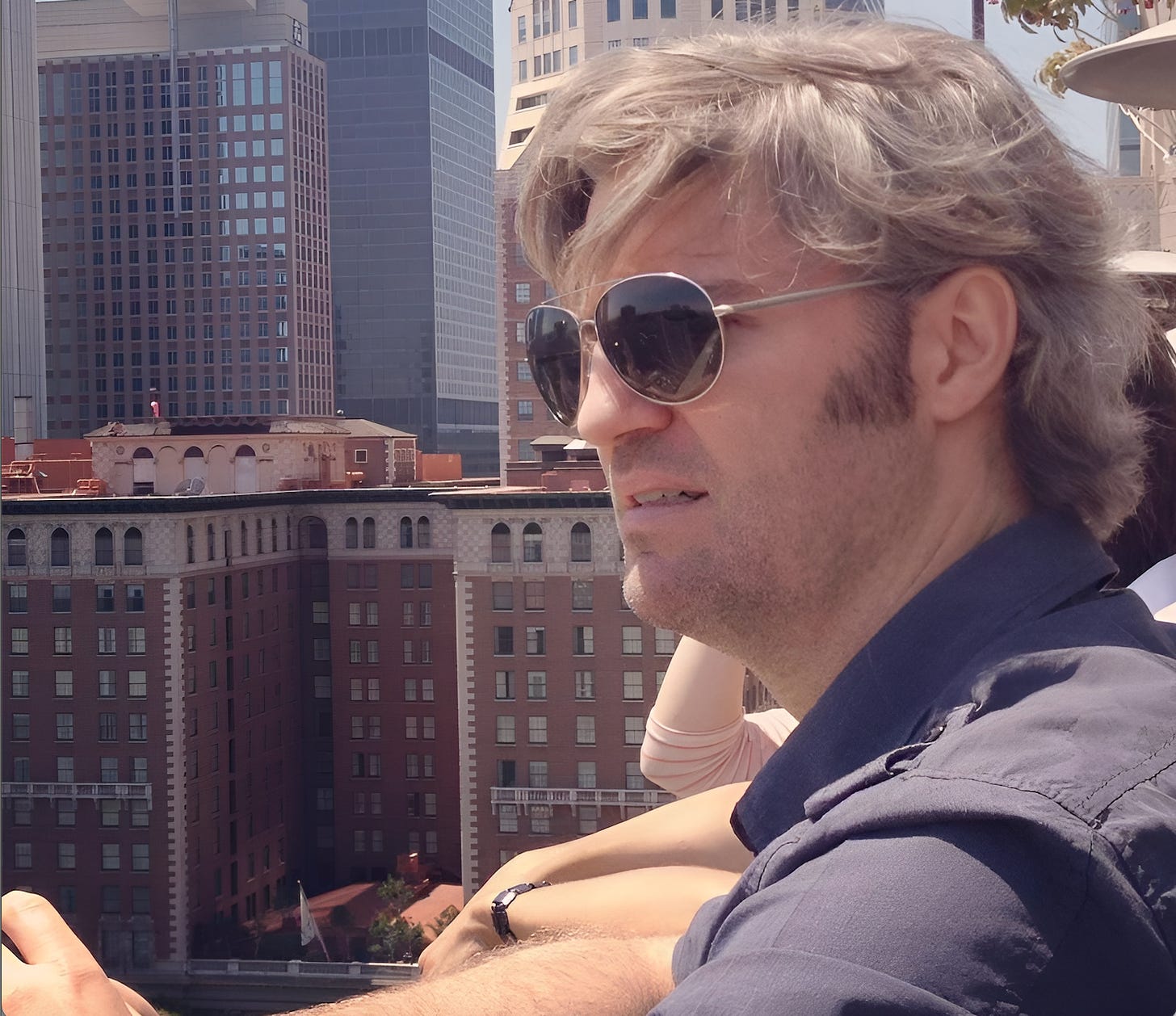
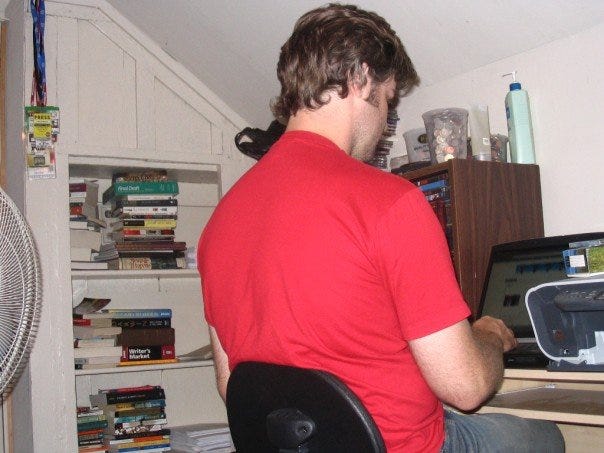
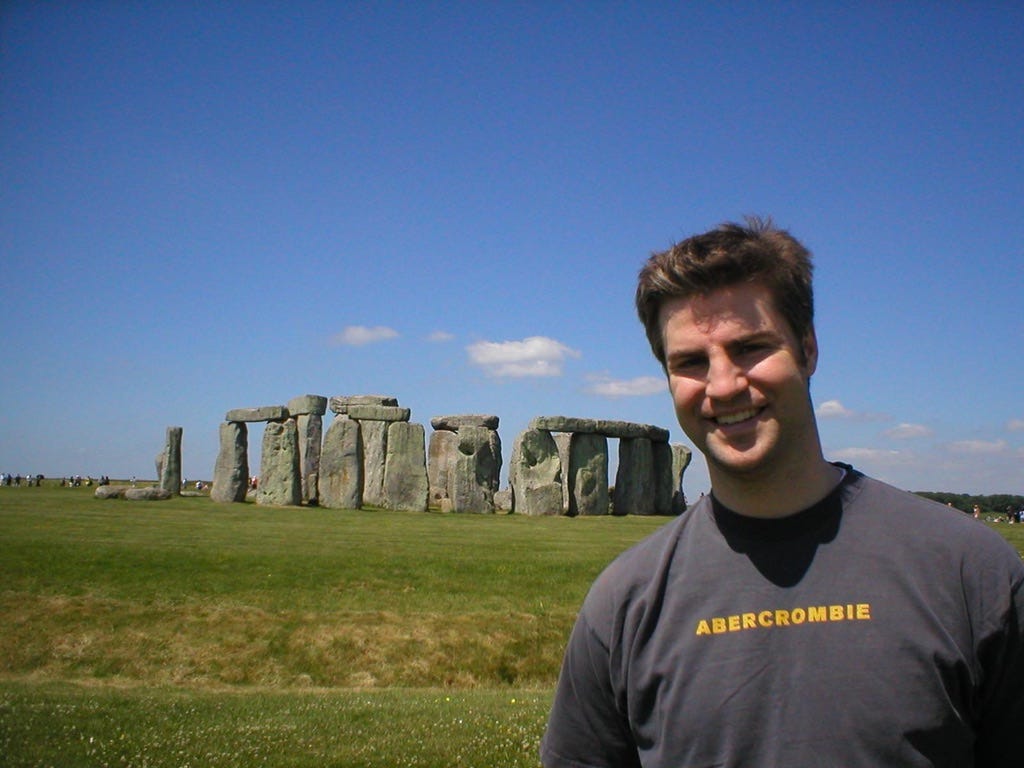
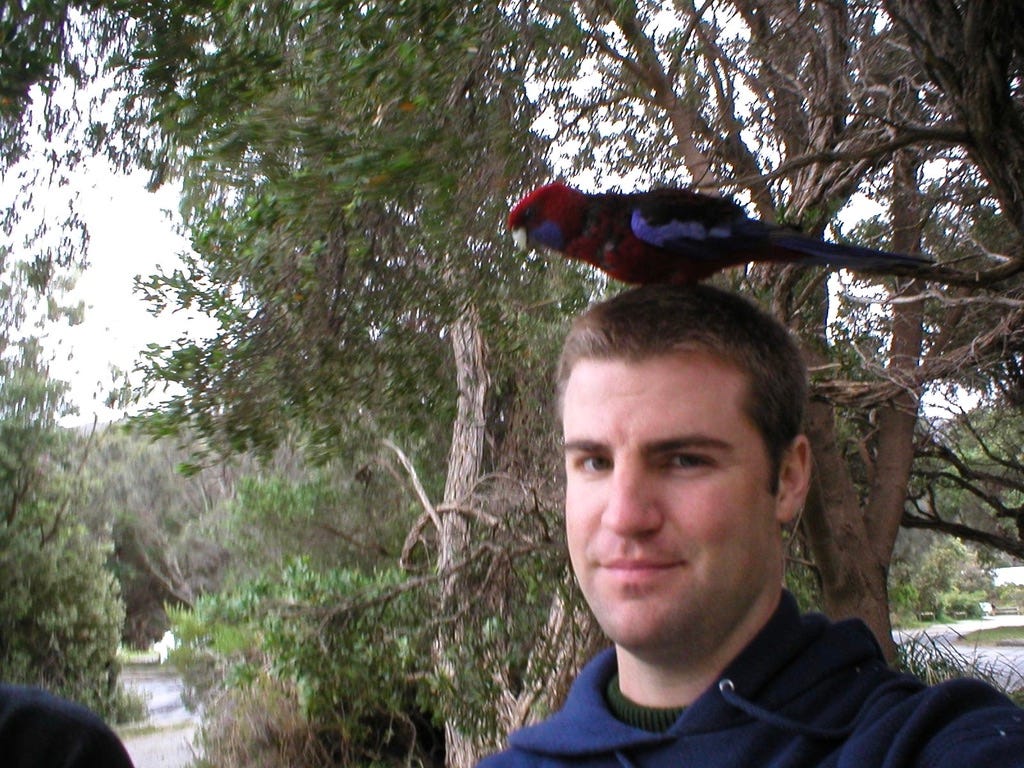
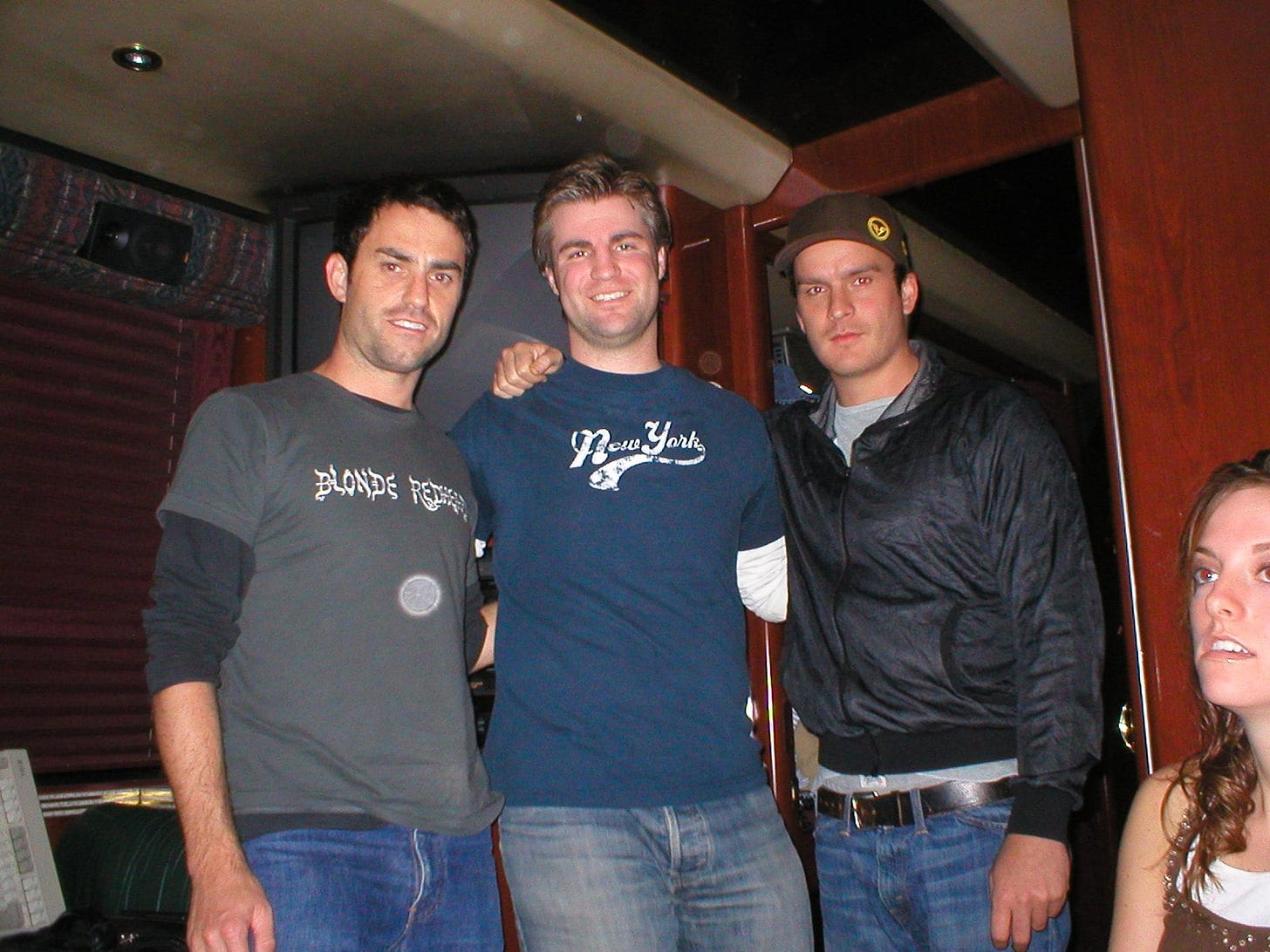
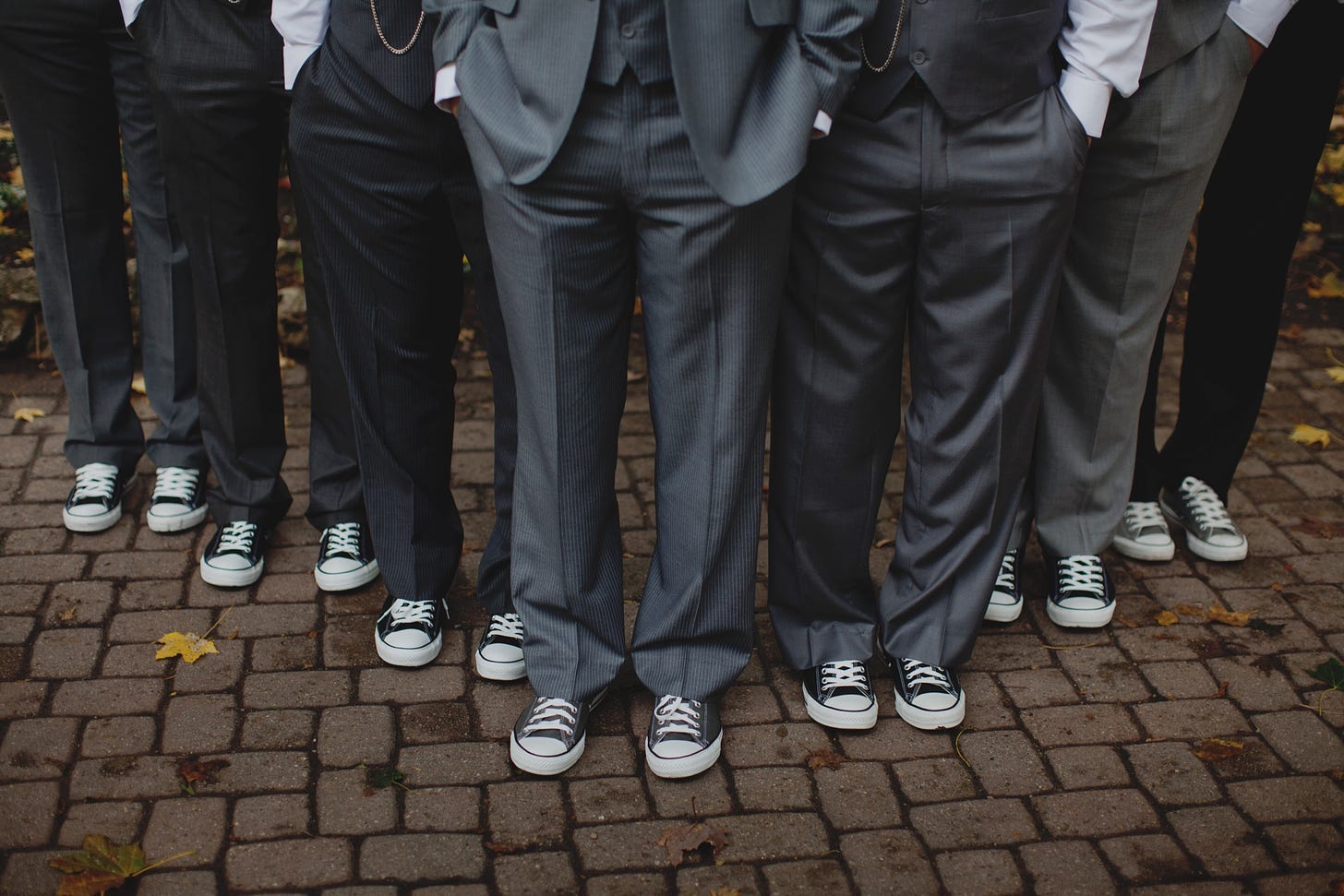
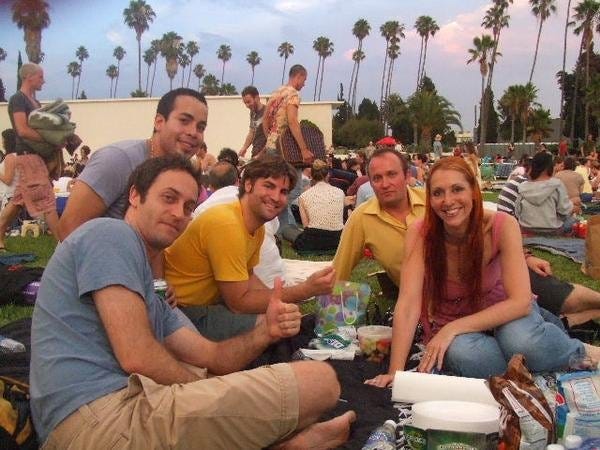
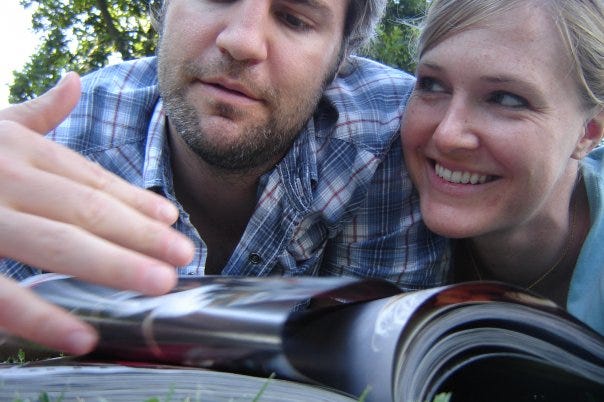
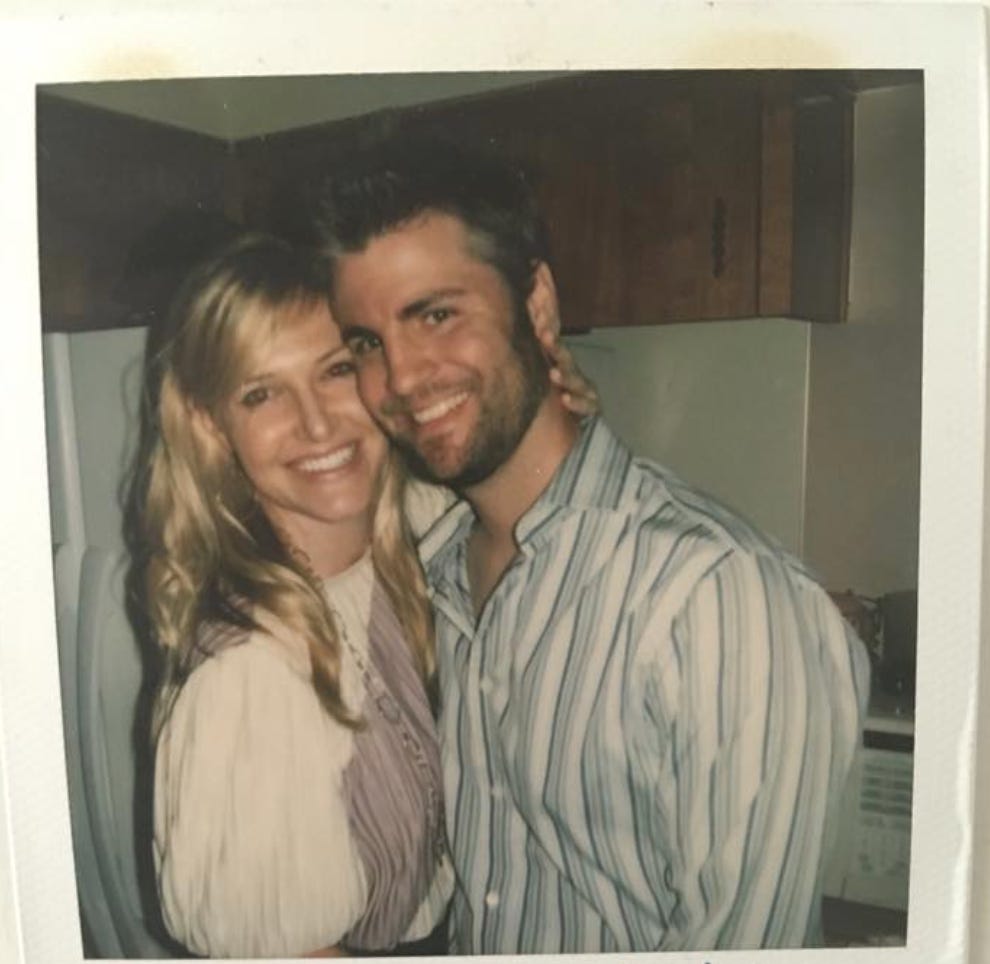
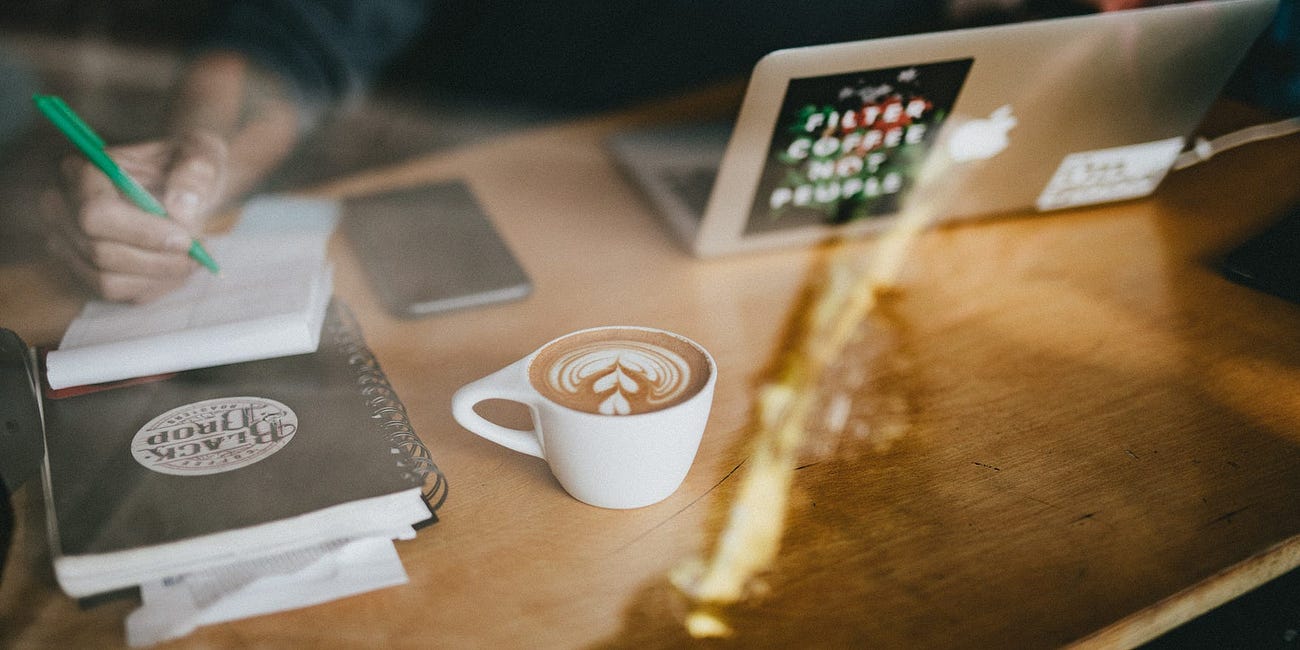
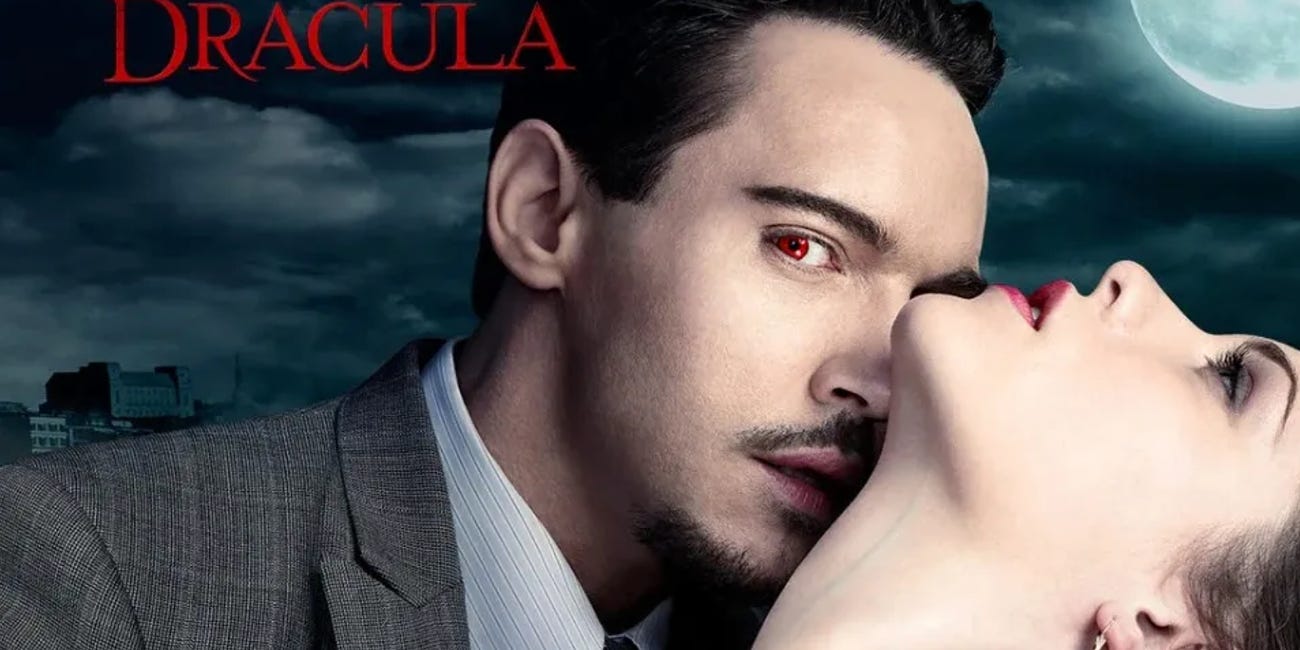
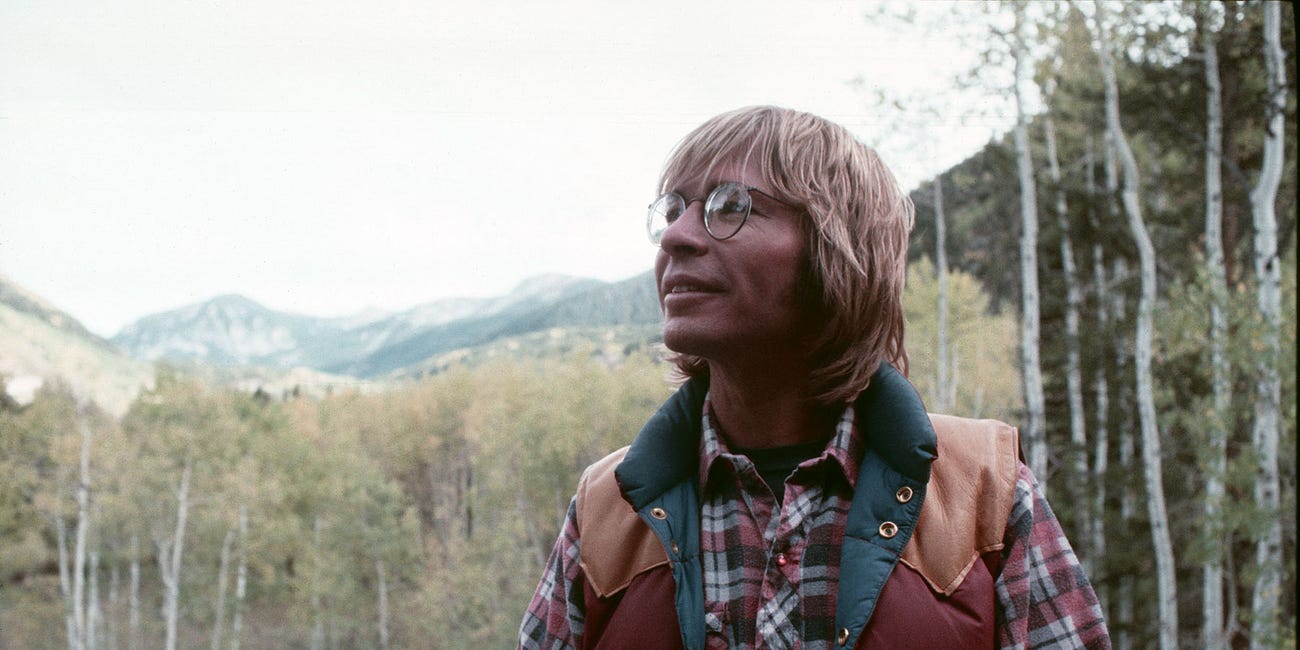
I can't believe you're a fellow Pole! (I should have changed my name years ago.)
I have finally got around to reading this. It’s a great piece. I love the sense of nostalgia I get from it while also feeling a sense of unease at the risks involved in pursuing your goals. I’m glad you found where you wanted to go.